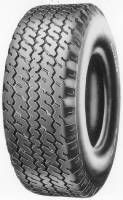Highway - Skid Steer Tires
-
 Availability: 7More Info...More InformationAdditional Info-Bearing-Bolt Pattern-Box Quantity-BrandALLIANCECenter Bore in/mm-ConstructionBIASCountry of Origin-Diameter14Finish-Hub Length-Industry Code-Load Index143Load/Speed Index143GMachine Fitment/Application-Max Load Capacity (Lbs)6000Max PSI100Mounted Diameter (Inch)36.5Pattern/PositionHIGHWAY MULTI PURPOSEPly/Load Index/Star Rating14Ratio-Rim Diameter17.5Rim Size17.5X10.5Rim Width10.5Rolling Circumference107.5Section Width14.3Size14-17.5Speed Rating/Speed (MPH)G/55Static Loaded Radius (inch)16.5Style239 MULTI PURPOSESurface / Terrain-Tread Depth (32nds)18/32Tread Width-Tube Type / TubelessTUBELESSTypeHIGHWAY MULTI PURPOSEValve-Weight (Lbs.)88.990000Wheel Back Spacing in/mm-Wheel Front Spacing in/mm-Wheel Offset in/mm-
Availability: 7More Info...More InformationAdditional Info-Bearing-Bolt Pattern-Box Quantity-BrandALLIANCECenter Bore in/mm-ConstructionBIASCountry of Origin-Diameter14Finish-Hub Length-Industry Code-Load Index143Load/Speed Index143GMachine Fitment/Application-Max Load Capacity (Lbs)6000Max PSI100Mounted Diameter (Inch)36.5Pattern/PositionHIGHWAY MULTI PURPOSEPly/Load Index/Star Rating14Ratio-Rim Diameter17.5Rim Size17.5X10.5Rim Width10.5Rolling Circumference107.5Section Width14.3Size14-17.5Speed Rating/Speed (MPH)G/55Static Loaded Radius (inch)16.5Style239 MULTI PURPOSESurface / Terrain-Tread Depth (32nds)18/32Tread Width-Tube Type / TubelessTUBELESSTypeHIGHWAY MULTI PURPOSEValve-Weight (Lbs.)88.990000Wheel Back Spacing in/mm-Wheel Front Spacing in/mm-Wheel Offset in/mm-
Highway Skid Steer Tires
Highway skid steer tires are designed primarily for skid steers that operate on paved or relatively smooth terrains, such as highways, roads, or large paved areas. Unlike the rugged, deep tread patterns found in typical skid steer tires meant for off-road applications, highway skid steer tires feature a flatter tread with a smoother design. They might also have more in common with industrial tires, given their application.
b. Advantages
- Reduced Wear: The smoother tread pattern is designed for longevity on abrasive asphalt and concrete surfaces.
- Enhanced Stability: These tires provide improved lateral stability, especially when performing tasks like turning or maneuvering at higher speeds.
- Fuel Efficiency: On smoother surfaces like highways, these tires can lead to better fuel efficiency due to reduced rolling resistance.
- Noise Reduction: The smoother tread design can result in reduced noise levels, a vital factor when operating in urban or populated areas.
c. Disadvantages
- Limited Off-road Capability: These tires are not optimized for muddy, uneven, or rocky terrains. Using them in such conditions can lead to rapid wear and reduced performance.
- Puncture Vulnerability: While designed for highways, these tires might still be vulnerable to punctures from debris commonly found on roads, such as metal fragments or glass.
d. Maintenance Tips
- Routine Checks: Given their usage on abrasive surfaces, regular inspections for wear, especially on the tread, are essential.
- Avoid Overloading: Ensuring the skid steer doesn't exceed its recommended load can extend the tire's life.
- Regular Cleaning: Roads and highways can have oil spills, chemical residues, or other contaminants that might affect the tire's lifespan. Regular cleaning can help mitigate these effects.
e. Best Use Cases
Highway skid steer tires are best suited for operations predominantly on paved surfaces. This includes:
- Road Construction: Where skid steers are used for tasks like asphalt laying or leveling.
- Urban Projects: Projects in urban settings where skid steers might be used for tasks on streets or within large paved areas.
- Transport Operations: For skid steers that are primarily used to move or transport materials across large, paved areas or from one part of a highway to another.
Choosing the right tire for skid steers operating primarily on highways or similar terrains can significantly impact the machine's efficiency, safety, and operational costs. Recognizing the benefits and limitations of highway skid steer tires can guide users in making an informed decision, ensuring optimal performance in their specific use-case scenarios.
